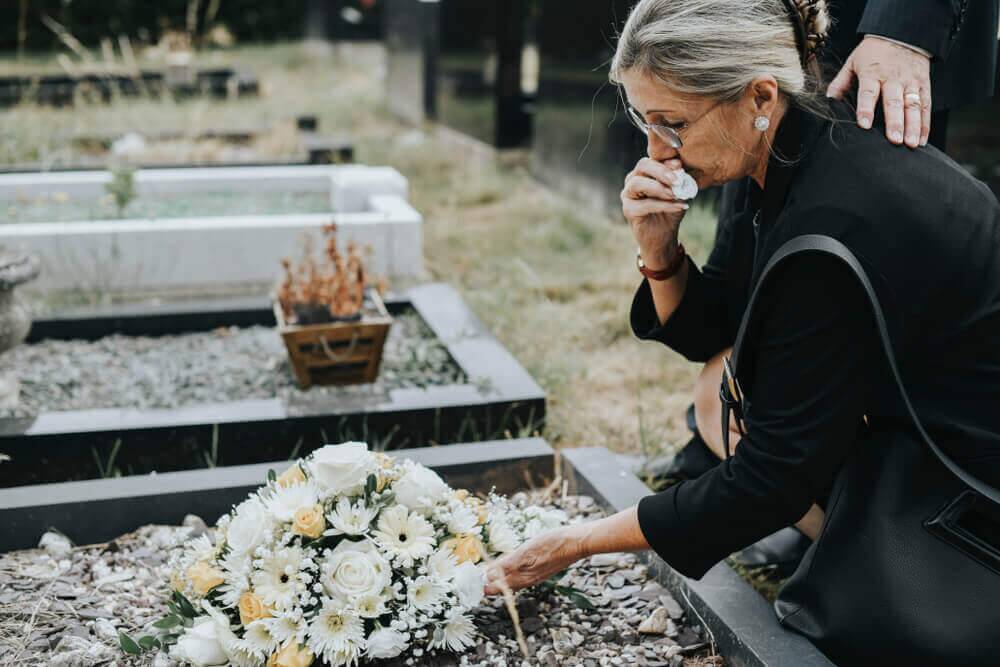Greensboro Wrongful Death Lawyer


Under North Carolina law, you have a time limit, called the statute of limitations, to file a lawsuit for compensation over the wrongful death. In North Carolina, the statute of limitations in wrongful death claims is usually two years from the date of the family member’s passing.
Filing your lawsuit after the expiration of the statute of limitations can allow the court to permanently dismiss your wrongful death case. That means you will lose your right to seek any compensation.
When your family has lost a loved one due to someone’s wrongful actions, a Greensboro wrongful death lawyer from Ward Black Law can help. The attorney can pursue financial recovery and justice for the family.
Our attorneys can assist your case by:
After your family has lost a loved one to wrongful death, your loved one’s estate and your family may be entitled to compensation for damages incurred due to the wrongful death. The damages might include:
When your loved one’s passing is caused by conduct that is considered egregious, you and your surviving family members may also be awarded punitive damages. These damages are intended to punish the wrongdoer for that behavior and to deter others from engaging in similar conduct.
Any settlement or jury award in a wrongful death lawsuit is distributed to the heirs of the deceased individual, in accordance with the North Carolina Intestate Succession Act. Any monetary settlement is not generally considered an asset of the deceased person’s estate and is not generally subject to creditors’ claims. However, some awarded funds may be used for funeral costs and medical expenses.
If your loved one’s death was caused by the wrongful acts of another party, you deserve to hold that party accountable. A wrongful death claim could provide you and your family with the financial compensation and justice that you and your loved one deserve.
You don’t have to pursue recovery for your loved one alone. Contact the experts at Ward Black Law for a free, no-obligation case evaluation by phone, in person, or online. Talk with one of our knowledgeable, compassionate Greenboro wrongful death lawyers about your legal rights and options.
One of the first questions many people ask in a case review is how much the lawyer’s fees will be in a wrongful death case. At Ward Black Law, we work on a contingency basis. That means you pay no money upfront, and our fee will be an agreed-upon percentage of your compensation.
Your wrongful death lawyer must establish that the defendant owed your loved one a duty of care but failed to uphold that responsibility. They must show that negligence on the defendant’s part led to the accident and your loved one’s death.
Your lawyer can prove negligence by putting together a case showing how the defendant’s actions or failure to act caused your loved one’s death. Your lawyer may use police reports, eyewitness testimony, photos, videos, your loved one’s medical records, and other evidence to build the case.
Filing a wrongful death case and going to court can be intimidating. However, most wrongful death claims settle before trial. Among the reasons that many wrongful death cases are settled out of court is that trials are costly and can be lengthy and risky. However, you should work with a lawyer who is prepared to go to trial if that is the best option for pursuing maximum compensation in your situation.
The maximum compensation in your wrongful death case sometimes depends on who pays in a wrongful death suit. For example, your award may be limited to the amount of the responsible party’s insurance policy limits.
In general, you could be entitled to money for:
One of the first questions to ask a wrongful-death attorney is, “How does a wrongful death lawsuit work?” Although each situation is different, you can expect the process to go something like this:
Yes. If your loved one was eligible to file a personal injury suit or was in the process of suing for compensation after an accident caused by someone else’s wrongdoing and died from accident-related complications, the executor of the estate may file a civil action on behalf of your deceased loved one.